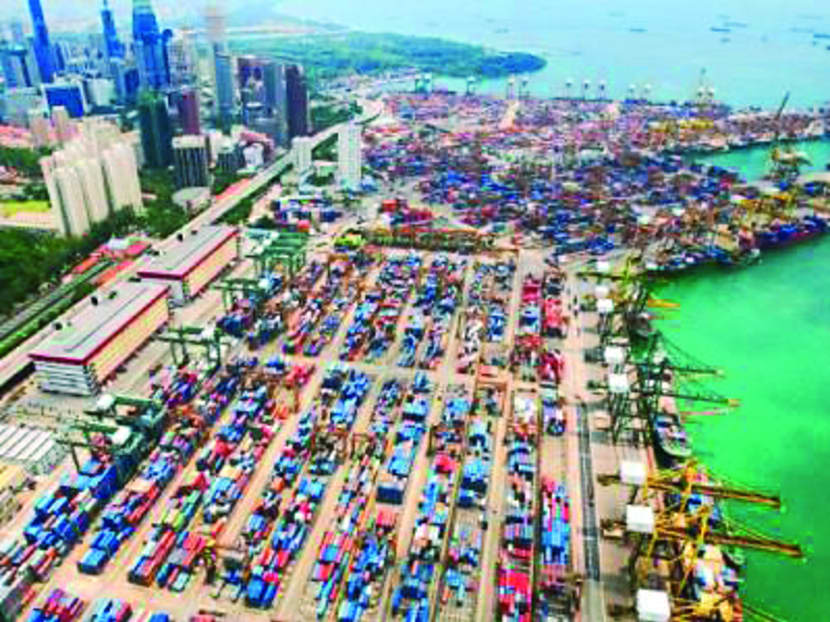Charting a course in turbulent waters
SINGAPORE — The Republic faces a number of key challenges as it fights to retain its status as the region’s premier shipping hub, but there are also opportunities for all stakeholders in the maritime industry to work together to build a strong ecosystem.

PHOTO: PSA
SINGAPORE — The Republic faces a number of key challenges as it fights to retain its status as the region’s premier shipping hub, but there are also opportunities for all stakeholders in the maritime industry to work together to build a strong ecosystem.
“The maritime industry isn’t just about shipyards and heavy machinery. Surrounding our ports, we want to also build up adjacent businesses,” Ms Tan Beng Tee, Acting Chief Executive for Development at the Maritime and Port Authority told TODAY at an industry insights briefing yesterday ahead of the launch of Sea Asia 2015.
“So we are also focusing on building expertise in knowledge-intensive operations such as ship broking, financing and operating activities. Collectively, we want to create a one-stop centre for maritime activities. That is the value we can create for shipping companies here,” she added. “Many countries have their aspirations to grow their maritime sector … But working with the industry, I believe we’re in a good position.”
The maritime industry is a key pillar of the Republic’s economy, contributing about 7 per cent to the country’s gross domestic product and employing more than 170,000 people across 5,000 firms.
But it also faces high business costs and a tight labour market, making it challenging for industry players to stay the course amid increasing rivalry from countries such as China, which are more competitive in pricing.
“Generally, labour costs are going up everywhere ... So it’s a challenge of productivity, to produce with fewer man hours, but more efficiently,” Mr Michael Chia, Managing Director for Marine and Technology at Keppel Offshore and Marine said at the briefing. “Against China, it isn’t just about labour costs; otherwise, we wouldn’t have gotten any rig orders in Singapore,” said Mr Chia, who is also the Chairman of the Singapore Maritime Foundation. “It’s really about the complete package. The infrastructure that Singapore can provide, the auxiliary services and clusters around us, and the brain power. These determine the total cost of a product.”
Keppel Corp is the world’s largest offshore oil rig builder, having secured around S$7 billion worth of new orders last year. But in recent years, yards in China and South Korea have been gearing up for a bigger share of the pie, with some reportedly slashing profit margins to attract more deals.
Meanwhile, more port cities in the Asia-Pacific are also joining the race to become the regional hub for sea trade. This comes as Asia now accounts for about 30 per cent of world trade, according to US-based consulting firm McKinsey, with ongoing growth to be fuelled by trade agreements and integration measures.
At the same time, the region’s overall exports grew by 2.8 per cent last year over Europe’s 0.6 per cent, data by the World Trade Organization shows.
And despite Shanghai overtaking Singapore and remaining the world’s busiest container port since 2010, there need not be only winners and losers in this race, Pacific International Lines’ Managing Director Mr Teo Siong Seng noted.
“Certainly, Shanghai has a lot going for it, with a rich maritime tradition and a strong cargo base. But growing a maritime centre is about both hardware and software … That’s why London remains a major centre for insurance, financing, arbitration and legal support,” he said.
“So Shanghai will be successful, but I believe there will be a few maritime centres in the world. I believe Singapore, Shanghai and even Hong Kong can coexist rather than compete,” Mr Teo added.





